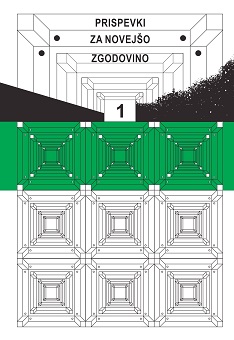Spopad »dveh Španij« z vidikov socialne strukture španske družbe in razrednih nasprotij v njej
Conflict Between »The Two Spains« from the Viewpoint of the Social Structure of the Spanish Society and Class Oppositions within It
Author(s): Avgust LešnikSubject(s): Civil Society, Military history, Political history, Social history, Interwar Period (1920 - 1939), Sociology of Politics, Peace and Conflict Studies
Published by: Inštitut za novejšo zgodovino
Keywords: Spain; Republic; Civil War (1936–1939); social structure; Falange; Popular Front; socialism;
Summary/Abstract: The following discussion focuses on the analysis of the Spanish society in the period between the First and the Second Republic (1875–1931), especially on the social structure and class oppositions within it as well as on identifying the causes leading to the irreconcilable political polarisation of the Spanish society during the Second Spanish Republic (1931–1936). The polarisation culminated in the parliamentary elections on 16 February 1936 and consequently led to the Civil War (1936–1939). The heterogeneity of the republican camp of the Popular Front was the reason for the multi-party Spanish socialism as well as the multi-party nature of the social revolution of 1936.
Journal: Prispevki za novejšo zgodovino (before 1960: Prispevki za zgodovino delavskega gibanja)
- Issue Year: 56/2016
- Issue No: 1
- Page Range: 23-38
- Page Count: 16
- Language: Slovenian

